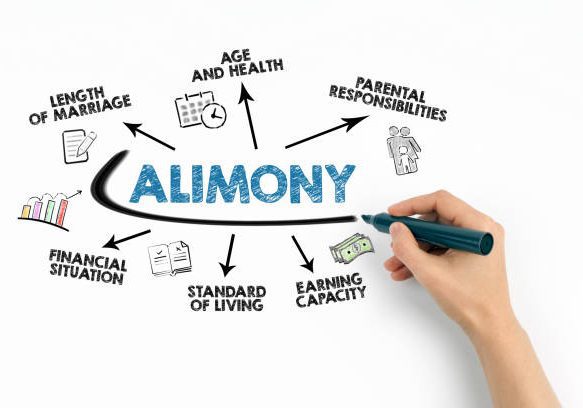Types of Alimony in Illinois: Understanding Your Options

When a marriage ends, financial arrangements are often a major point of concern. In Illinois, alimony—officially referred to as “spousal maintenance”—is designed to provide financial support to the lower-earning spouse, ensuring a smoother transition to independent living. The type and duration of alimony awarded depend on various factors, including the length of the marriage, the financial situation of both spouses, and the potential for the receiving spouse to become self-sufficient. Below, we explore the different types of alimony available in Illinois: temporary, rehabilitative, permanent, and reimbursement.
1. Temporary Alimony
Temporary alimony, also known as “pendente lite” support, is awarded during the divorce process to help a spouse maintain financial stability until the final divorce settlement. Divorce proceedings can be lengthy, and during this time, one spouse may be in a precarious financial situation. Temporary alimony covers immediate needs such as housing, utilities, or other basic living expenses.
This type of alimony ends when the divorce is finalized and may be replaced by a more permanent arrangement depending on the court’s determination.
Purpose: Provide financial stability during the divorce process.
2. Rehabilitative Alimony
Rehabilitative alimony is designed to provide support for a spouse who needs time to gain employment skills or further education to become financially independent. This type of alimony is common when one spouse has sacrificed career opportunities to support the family—such as staying home to raise children. The court may award this alimony with the expectation that the receiving spouse will take steps to support themselves within a set period.
For example, a spouse who stayed home during a marriage to care for children may need financial assistance to attend school or training programs to reenter the workforce.
Purpose: Help the receiving spouse gain financial independence through education or skill development.
3. Permanent Alimony
Permanent alimony is less common in modern Illinois divorces, but it can still be awarded in certain situations. This type of support is generally reserved for long-term marriages where one spouse is unlikely to become self-sufficient due to age, illness, or other limitations. The court may order permanent alimony if it determines that the spouse has little to no earning potential, often after a marriage that lasted many years.
Though it is called “permanent,” this type of alimony can still be modified or terminated if circumstances change, such as if the receiving spouse remarries or the paying spouse experiences a significant reduction in income.
Purpose: Provide long-term financial support when the receiving spouse is unlikely to become self-sufficient.
4. Reimbursement Alimony
Reimbursement alimony is awarded when one spouse supported the other through educational opportunities that enhanced their earning potential. For instance, if one spouse worked to put the other through medical school or law school, the supporting spouse may seek reimbursement for the financial contributions they made during that time. This type of alimony aims to compensate the supporting spouse for their investment in the other spouse’s future earning capacity.
Reimbursement alimony differs from other types in that it does not focus on the financial needs of the spouse receiving it. Instead, it addresses the contributions made by one spouse to the other’s success.
Purpose: Compensate the supporting spouse for contributions made to the other spouse’s career or education.
Conclusion
Understanding the different types of alimony in Illinois can help divorcing spouses navigate the complexities of financial support. Whether temporary, rehabilitative, permanent, or reimbursement-based, each type of alimony serves a specific purpose, tailored to the unique circumstances of the marriage and the financial needs of the spouses involved.
If you’re going through a divorce, working with an experienced attorney can help ensure that the alimony arrangement is fair and appropriate for your situation.





